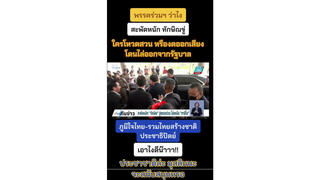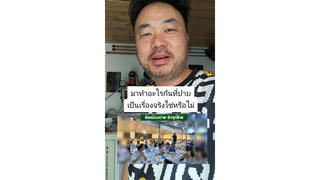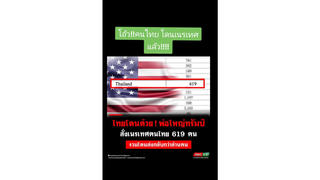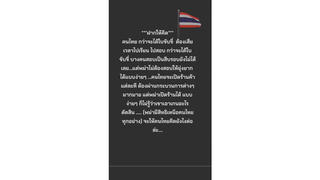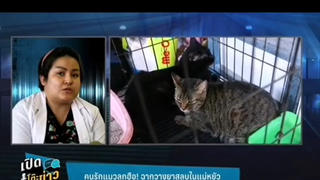
Is rice that has been stored for 10 years, that the Thai government still intends to sell to the public, edible? No, that's not true: The rice that the government proposes to sell has been stored in inappropriate conditions and has been found to contain many carcinogens, possibly including aflatoxin, according to experts. The World Health Organization (WHO) (archived here) has warned that aflatoxins are among the most potent mutagenic and carcinogenic substances known, posing a danger to animals and humans.
The claim originated from a video (archived here) published on TikTok on March 21, 2024. The caption (translated from Thai to English by Lead Stories staff) read:
What does the test for 10-year-stored rice look like?
This is what the post looked like on TikTok at the time of writing:
(Source: TikTok screenshot taken on Mon May 13 07:56:15 2024 UTC)
The TikTok video and a news report by One 31 News, a Thailand-based channel, claim it has been demonstrated that rice stored for ten years remains edible. The report suggests that while the smell and color of the older rice may differ from newly harvested rice, tests have shown that it is still safe for consumption. Following the release of this news report (archived here), many people have expressed concerns regarding the safety of consuming rice that has been stored for such an extended period.
Over the past decade, Thailand's first female Prime Minister, Yingluck Shinawatra, introduced a policy known as the rice pledging scheme (archived here). This initiative aimed to support Thai farmers by allowing them to pledge their rice to the government, which would then purchase the rice at a higher price than market rates. The goal was to bolster rice prices and protect farmers from exploitation by middlemen. However, in 2014, when the Thai government changed, the policy was terminated. Nevertheless, the rice purchased under this scheme has remained stored in the Surin district for the past ten years.
Srettha Thavisin, (archived link) Prime Minister of Thailand, has proposed selling the ten-year-old stored rice to the public. On May 7, 2024, Deputy Prime Minister Phumtham Wechayachai (archived here) demonstrated it was safe to eat, by consuming it in front of an audience. However, this has sparked concerns among many Thai citizens regarding the safety of consuming rice stored for such an extended period.
In response to these concerns, an academician from the Faculty of Agriculture of Chiang Mai University (archived here) took to Facebook to debunk the notion that rice is still safe for consumption (see screenshot below). She explained that typically, the longest recommended storage period for rice or animal feed is around one year. Additionally, proper storage conditions necessitate a cool environment with temperatures around 13 degrees Celsius. The academician noted that from the images provided, the rice sacks appeared to be stored in an overcrowded environment, creating a conducive environment for insects and fungi to thrive.
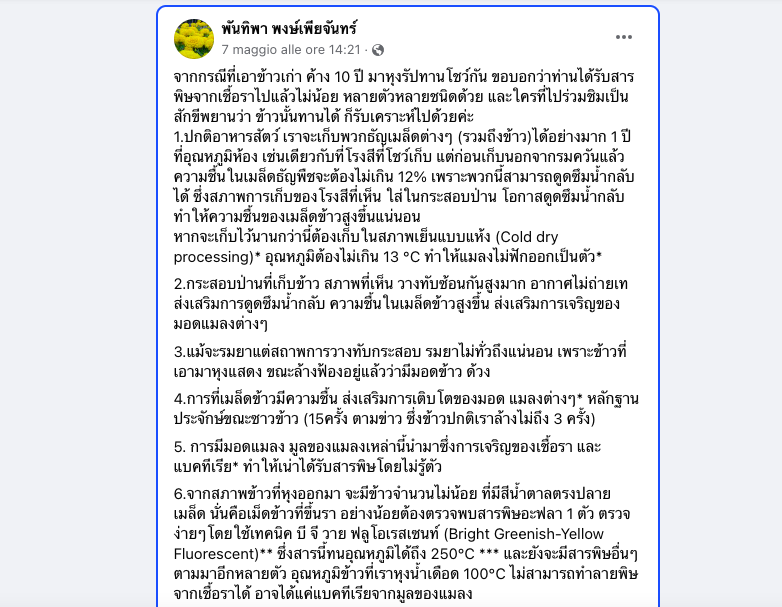
(Source: Facebook, screenshot taken on Wed May 15, 09:18:43 2024 UTC)
Furthermore, on May 10, 2024, Weerachai Phutdhawong, (archived here) a professor of chemistry from the Faculty of Liberal Arts and Science at Kasetsart University, in Bangkok, conducted tests on the stored rice that the government intends to sell using test kits from the rice research center. After performing the tests three times, he found the presence of numerous carcinogens in the rice, in one of the three tests conducted. However, further examination is required to thoroughly assess the presence of aflatoxin, which necessitates a highly technical process.






